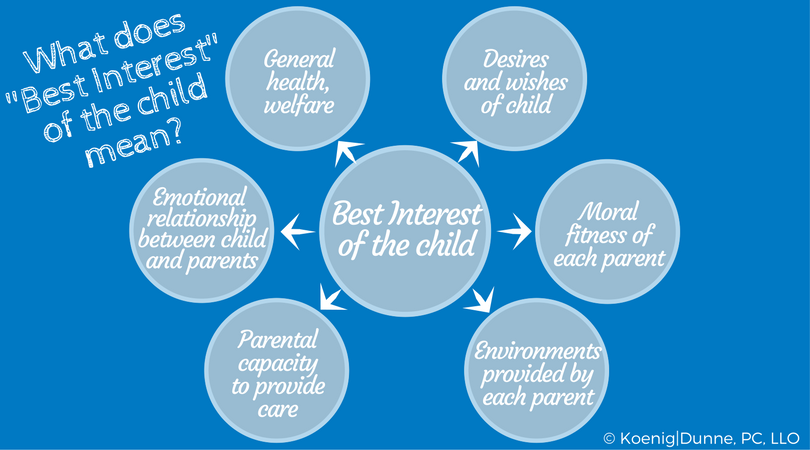Parents involved in custody actions are eager to know how a judge will decide custody of their children. The Nebraska Parenting Act provides that the paramount concern in any decision regard custody, parenting time, or other child-related issues is what is in the minor child’s best interests. This standard is simply known as the “best interests of the child” standard. It is a child-focused approach to making decisions that affect the well-being of the child.
Nebraska law provides a non-exhaustive list of factors that a court may consider when determining what is in the best interests of the child. For example, a court may consider:
- The relationship of the minor child to each parent prior to the commencement of the action or any subsequent hearing;
- The desires and wishes of the minor child, if of an age of comprehension but regardless of chronological age, when such desires and wishes are based on sound reasoning;
- The general health, welfare, and social behavior of the minor child;
- Credible evidence of abuse inflicted on any family or household member; or
- Credible evidence of child abuse or neglect or domestic intimate partner abuse.
Courts may also consider:
- The moral fitness of the child’s parents, including the parents’ sexual conduct;
- Respective environments offered by each parent;
- The emotional relationship between child and parents;
- The age, sex, and health of the child and parents;
- The effect on the child as the result of continuing or disrupting an existing relationship;
- The attitude and stability of each parent’s character; or
- Parental capacity to provide physical care and satisfy educational needs of the child.
It’s unlikely that one factor on its own will determine what is in the child’s best interests. Rather, a court will look at the big picture, apply the above factors to the facts of your case, and weigh them accordingly.
The “best interests” standard will carry throughout the course of your case whenever decisions affecting your child are made. When preparing or mediating your Parenting Plan, weigh the decisions you’re making against the “best interests” standards. For example, when you and your co-parent are brainstorming a routine parenting time schedule, ask, “Will this schedule be in my child’s best interests?” Often times parents drift away from this standard and focus on what’s in their own interests. It is important to keep your child’s developmental needs and well-being top-of-mind throughout this life-changing event.
Lindsay Belmont

